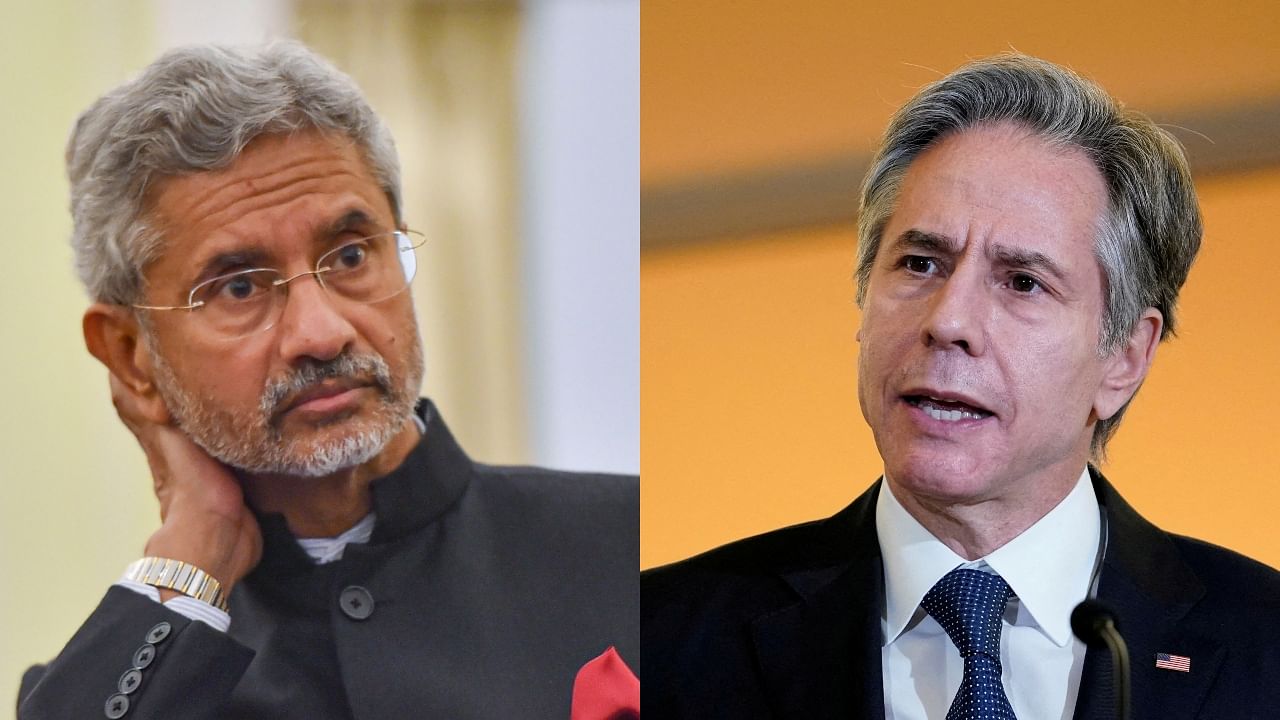
Foreign ministers of the Quad (Quadrilateral Security Dialogue) countries – Australia, the United States, India, and Japan – are scheduled to meet this week in Melbourne and review progress on decisions arrived at the first physical summit of leaders held at the White House last September.
India's External Affairs Minister S Jaishankar is expected to attend the meeting hosted by his Australian counterpart Marise Payne. The US Secretary of State Antony Blinken will be in Australia and the Pacific region for three days starting Wednesday. He will attend the Quad ministers meeting, which Japanese Foreign Minister Hayashi Yoshimasa is scheduled to attend.
With time ticking away, on the top of the agenda would be a plan to roll out Covid-19 vaccines for countries in the Indo-Pacific region. The agreement arrived at by the leaders is a major step committing the Quad to hasten economic recovery of countries affected on account of the global health pandemic. According to the programme, the United States is to supply the vaccine, and India is to produce one billion doses, with Japan providing the funds and Australia working on the logistics to deliver these life-saving medicines from the end of 2022.
Last week the US Department of State, articulating the centrality of Blinken's mission to Australia, said that the four democratic countries are working to deliver "in this era of intense competition, changing strategic landscapes, economic coercion, and, of course, this very difficult global pandemic, there is no greater global partnership than what are we trying to accomplish through the Quad…through this partnership that we help support global economic recovery."
The Melbourne meeting comes ahead of a plan by Japan to host the second physical summit this summer. This week's assembly of the Quad foreign ministers comes in the backdrop of a stand-off between the United States and Europe with Russia over Ukraine, raising political temperature all around. Over the past few weeks, the United States and a few NATO allies mobilised troops in countries around Ukraine, anticipating a military action by Moscow.
India took a nuanced stand over developments in Ukraine, calling for a "peaceful resolution of the situation through sustained diplomatic efforts for long term peace and stability in the region and beyond." Then at the UN Security Council, on a procedural vote whether to discuss the emerging situation in Eastern Europe, India abstained. The decision was appreciated by Moscow, while some Western countries were not convinced why New Delhi preferred to be seen as standing with China, which voted against it.
The United States is expected to push the envelope on Ukraine during the Quad ministerial. The US State Department indicated its natural for Washington to expect the rest three to address important issues, including Ukraine since it is a development that poses a threat to the rules-based global order.
On the ever-present threat from China in the region that casts a long shadow across the Indo-Pacific area, the Quad should reiterate commitment to a rules-based order that all countries should follow and resolution of disputes in a peaceful fashion. China remains critical of the grouping, insisting that besides hyping up the threat from Beijing, the formation aims at creating differences between China and other countries in the region.
Besides the geo-strategic developments and pressing the accelerator on delivering vaccines, the Quad agreed agenda of cooperation includes maritime security, infrastructure development, counter-terrorism, cyber-security, countering disinformation, climate change, critical and emerging technologies, which lays accent on technical standards, 5G diversification and deployments, horizon scanning and technology supply chains.
Interestingly, during the last week of January, the US Congress passed the Competes Act to shore up domestic supply chains and critical research to make the country competitive. The Act references the attitude of the US Congress towards the Quad and suggests setting up an intra-parliamentary working group. The US Senate had passed a similar law earlier, and under a process, a Conference should reconcile both versions.
The Act states the working group could both sustain and deepen the interaction of senior officials on issues across the spectrum. The group, it suggests, be modelled on the lines of such bilateral formal parliamentary arrangements the US Congress has with the United Kingdom, Canada, and Mexico or informal parliamentary exchanges.
The Indian Parliament does not have an institutional arrangement with the US Congress, but MPs hold informal meetings when Congressional delegations visit the country. In fact, in the joint statement after the last 2+2 foreign and defence ministers meeting in 2019, both governments hoped to have formal exchanges between the two legislative bodies.
Blinken may also have to touch up another requirement under the Act. When it becomes operational, it directs him to submit a report to appropriate Congressional committees on the strategy to increase cooperation and engagement with the Quad after six months.
In addition, in a month, the US secretary of state will have to enter into negotiations with each of the other three Quad members to arrive at a "written agreement" for setting up such a working group. The Quad, characterised as an informal working arrangement, may acquire a formal structure distinct from the waning and waxing phase it underwent during the last decade.
(The writer is a journalist.)
Disclaimer: The views expressed above are the author's own. They do not necessarily reflect the views of DH.